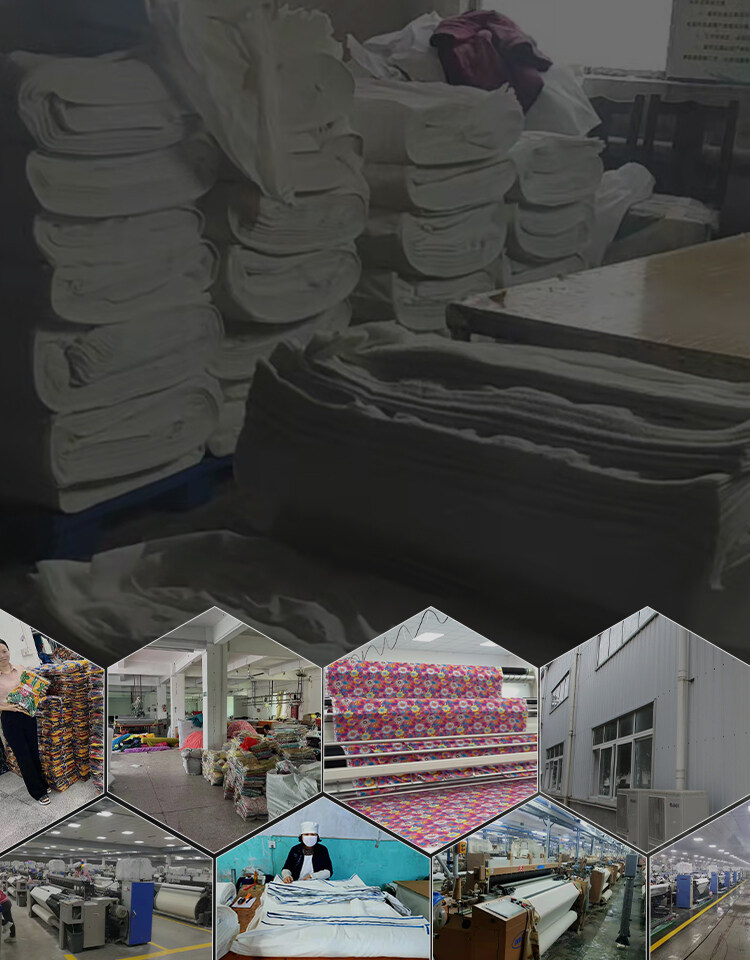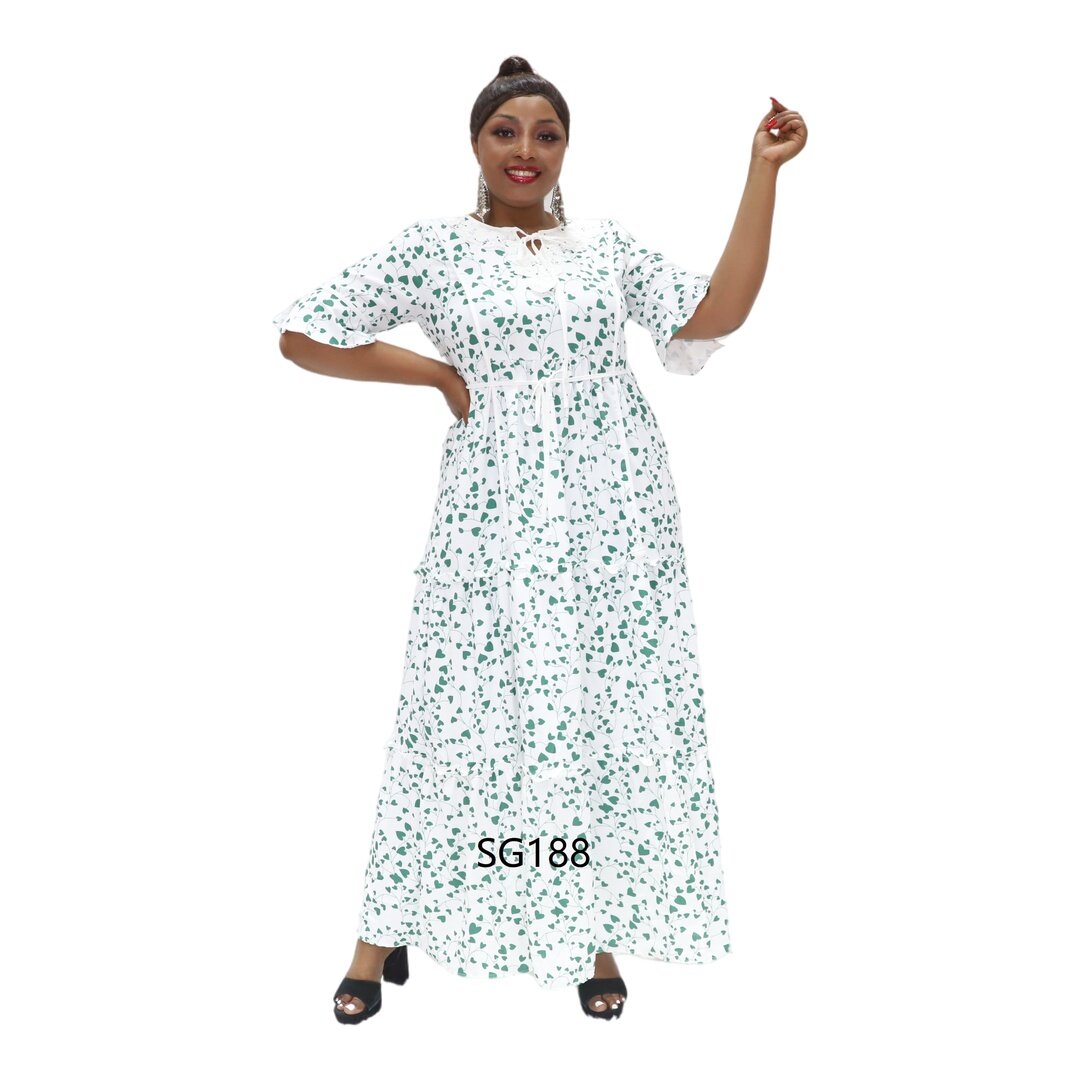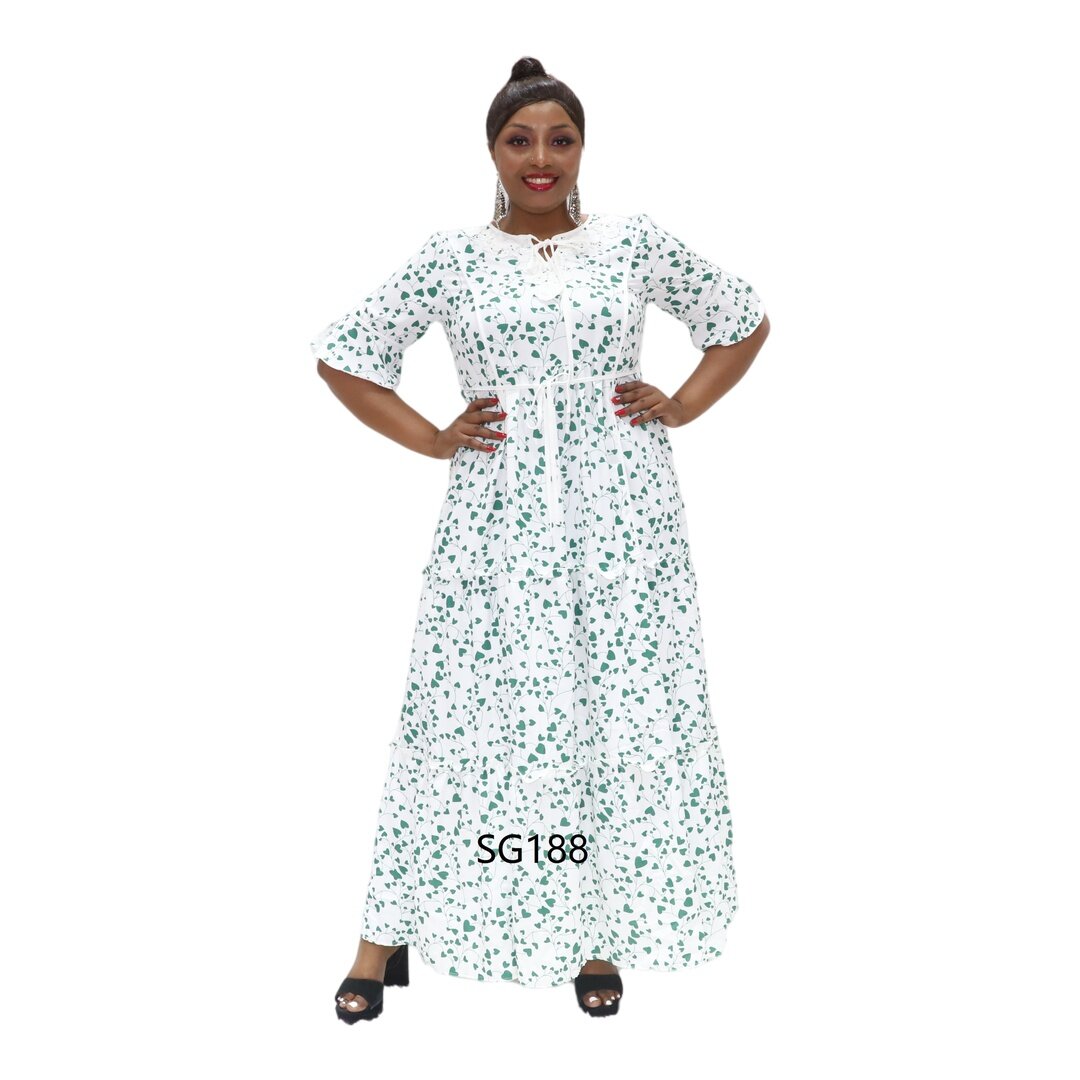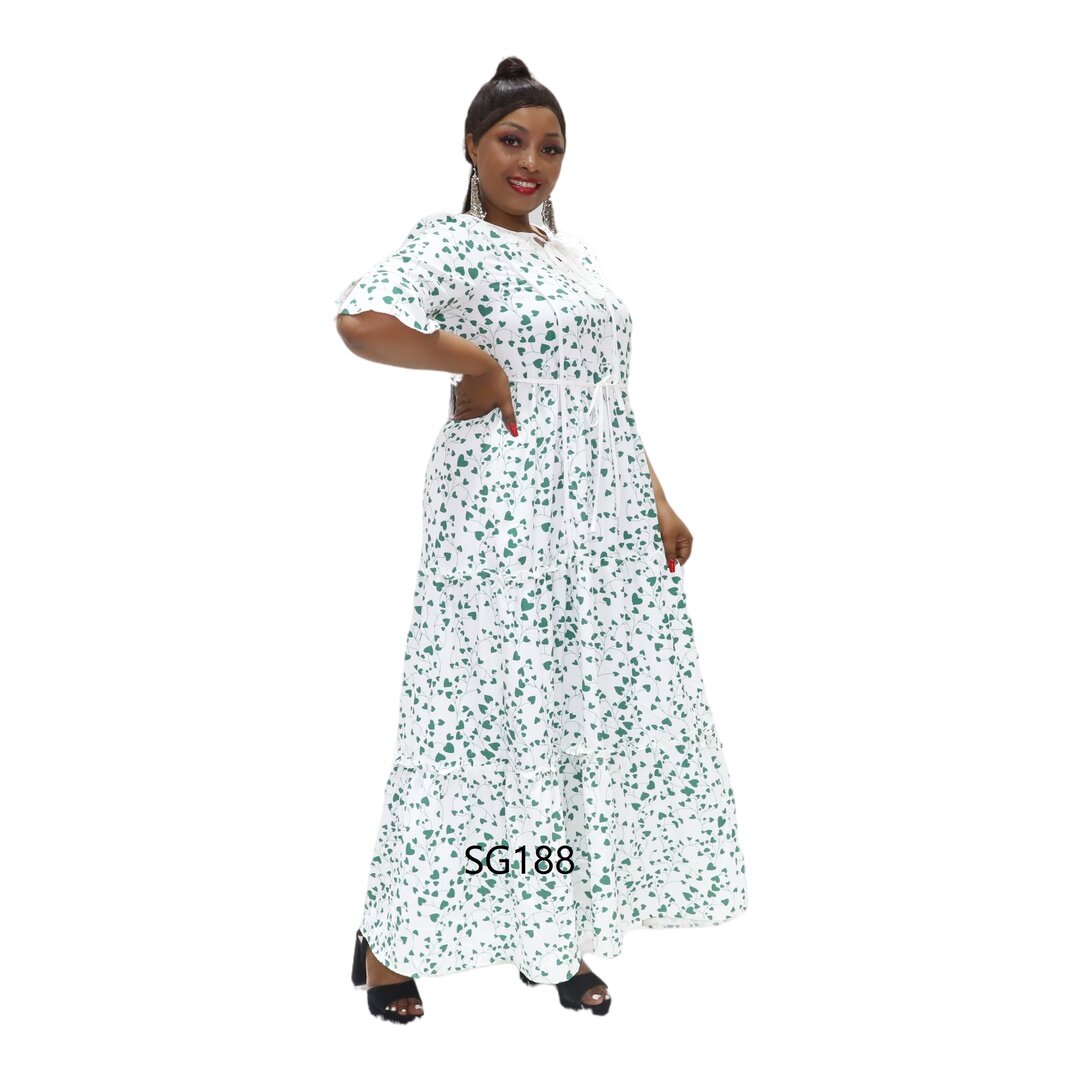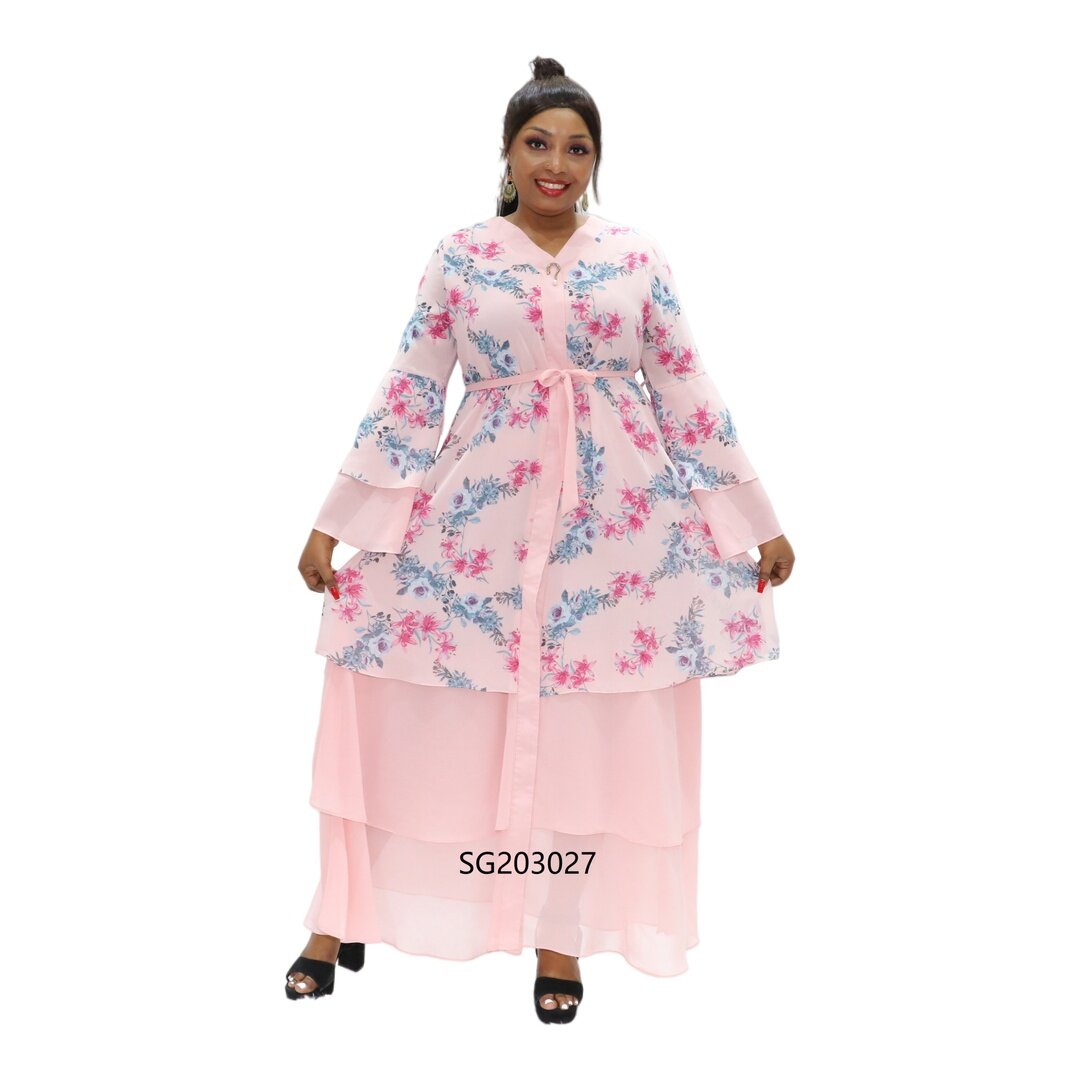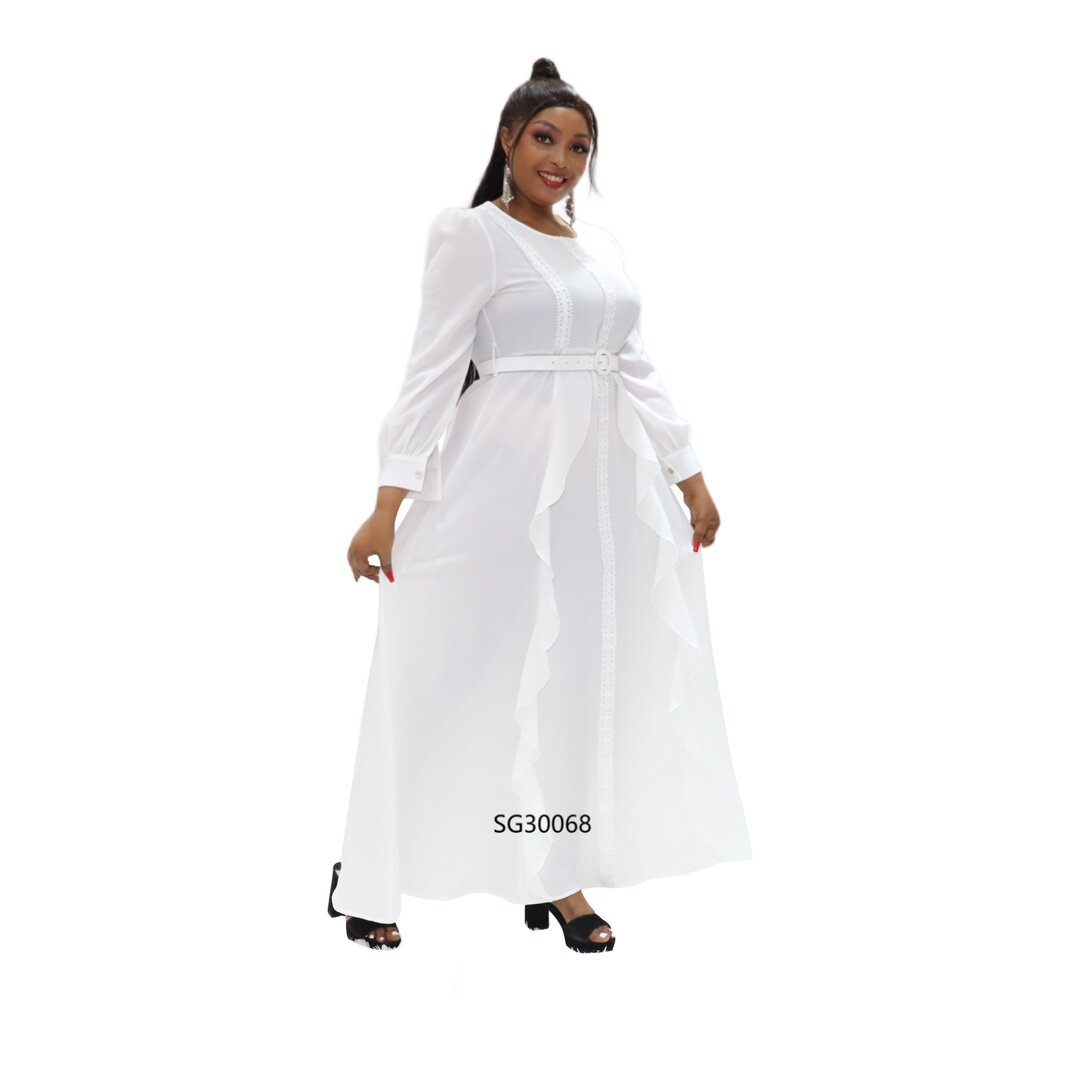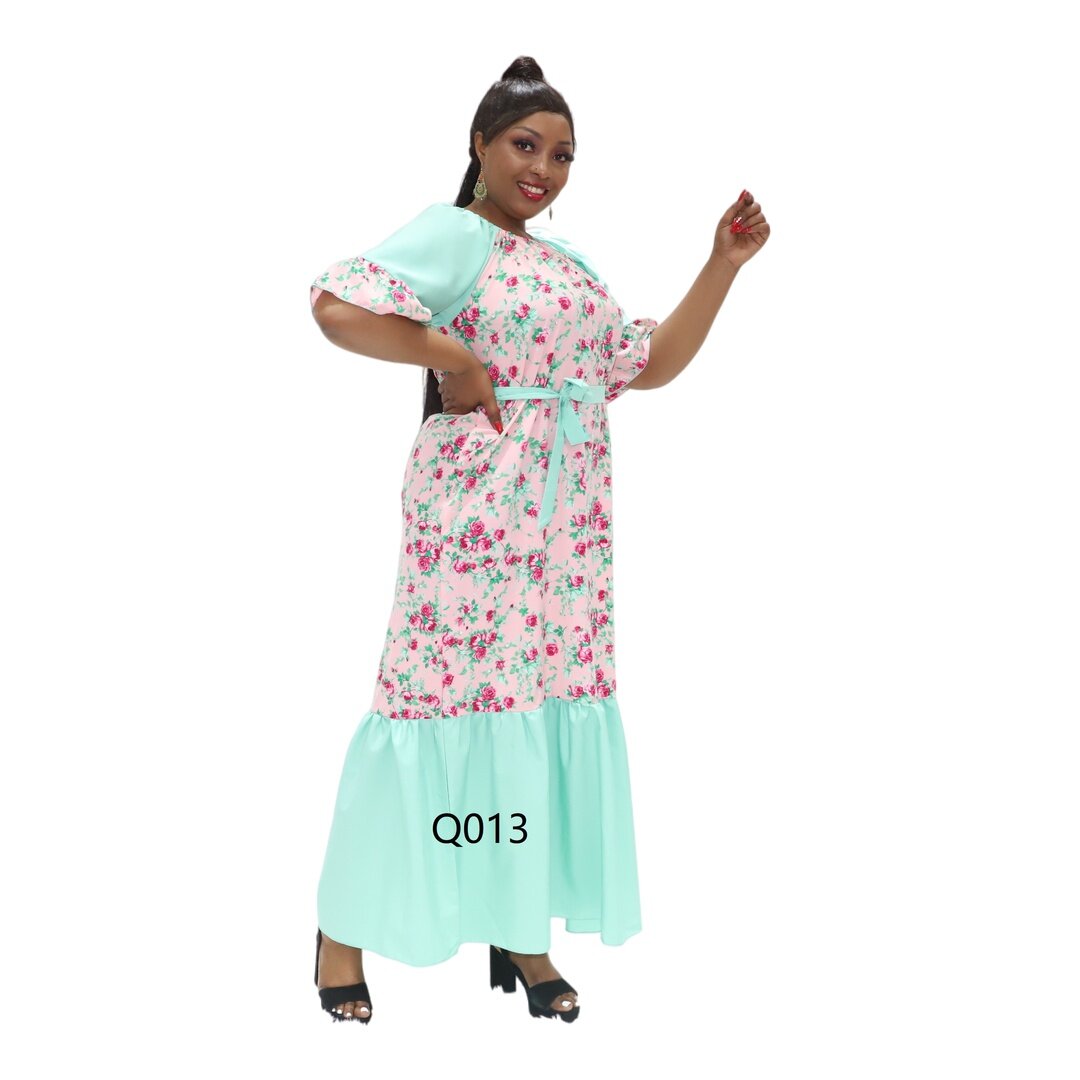Email format error
Email cannot be empty
Email already exists
6-20 characters(letters plus numbers only)
The password is inconsistent
Email format error
Email cannot be empty
Email does not exist
6-20 characters(letters plus numbers only)
The password is inconsistent

White women's floral african print shirred midi dress
Polyester fabrics are developed towards the naturalization of synthetic fibers such as wool-like, silk-like, linen-like and deerskin-like fibres. This will exert better wearing performance and further improve the breathability and thermal insulation.
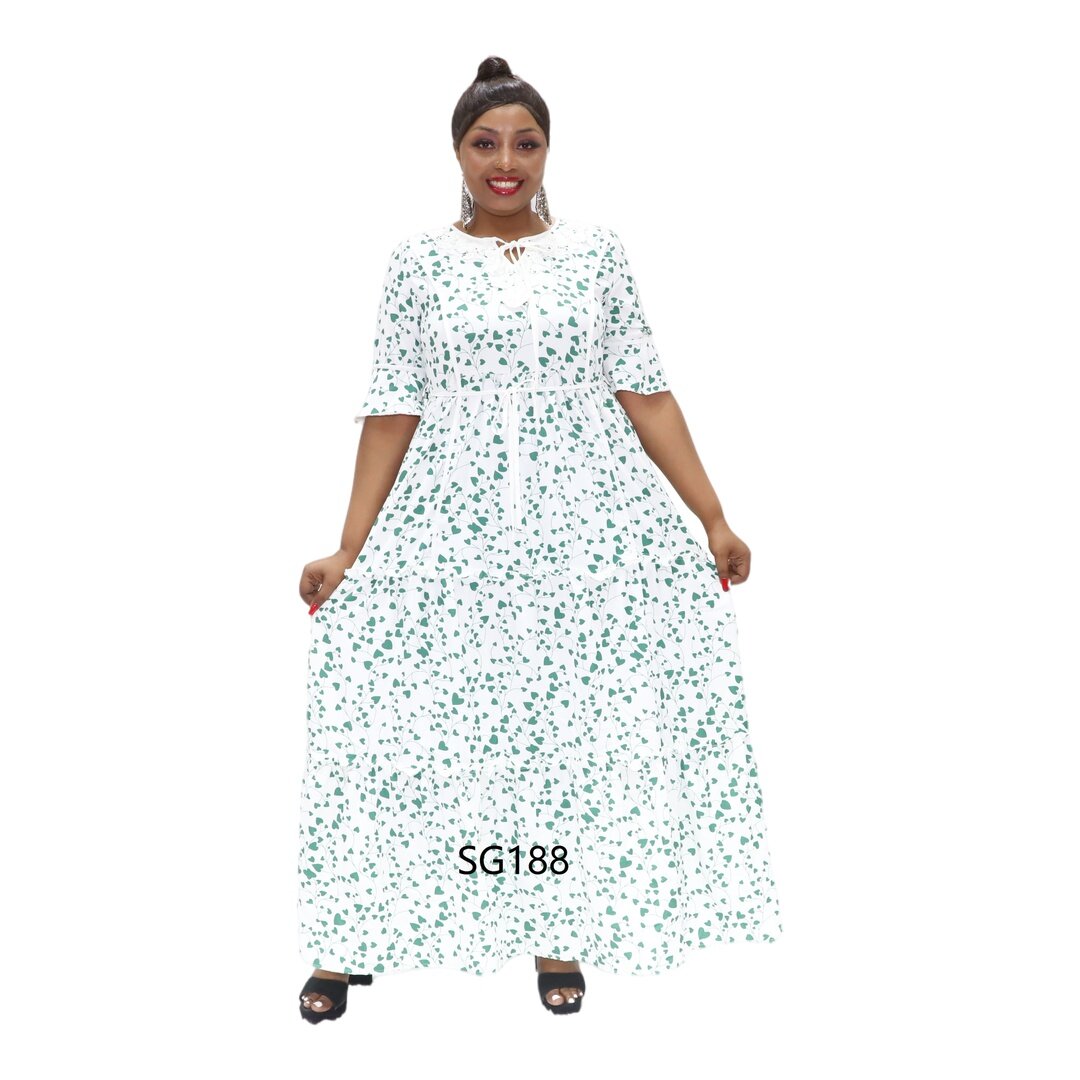
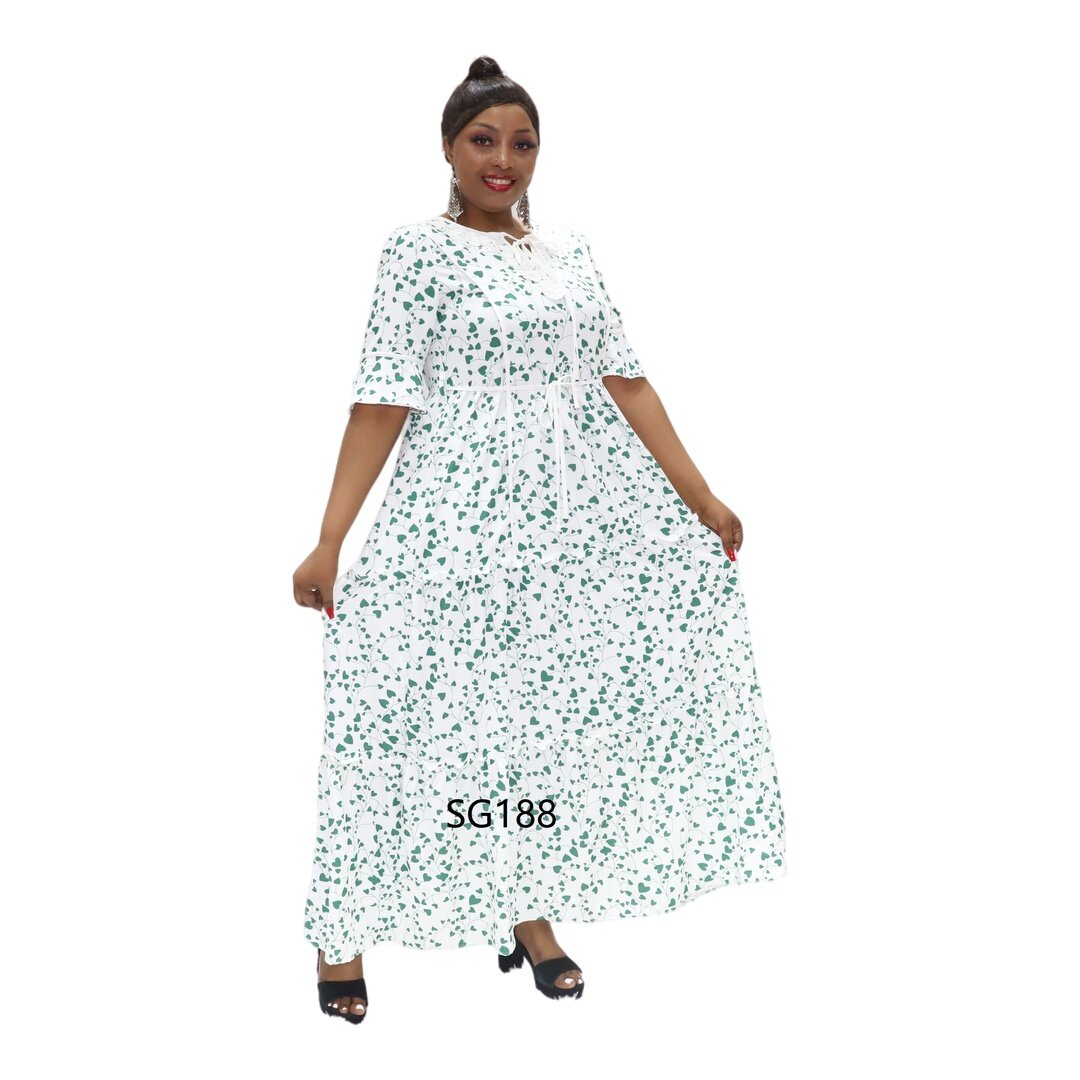
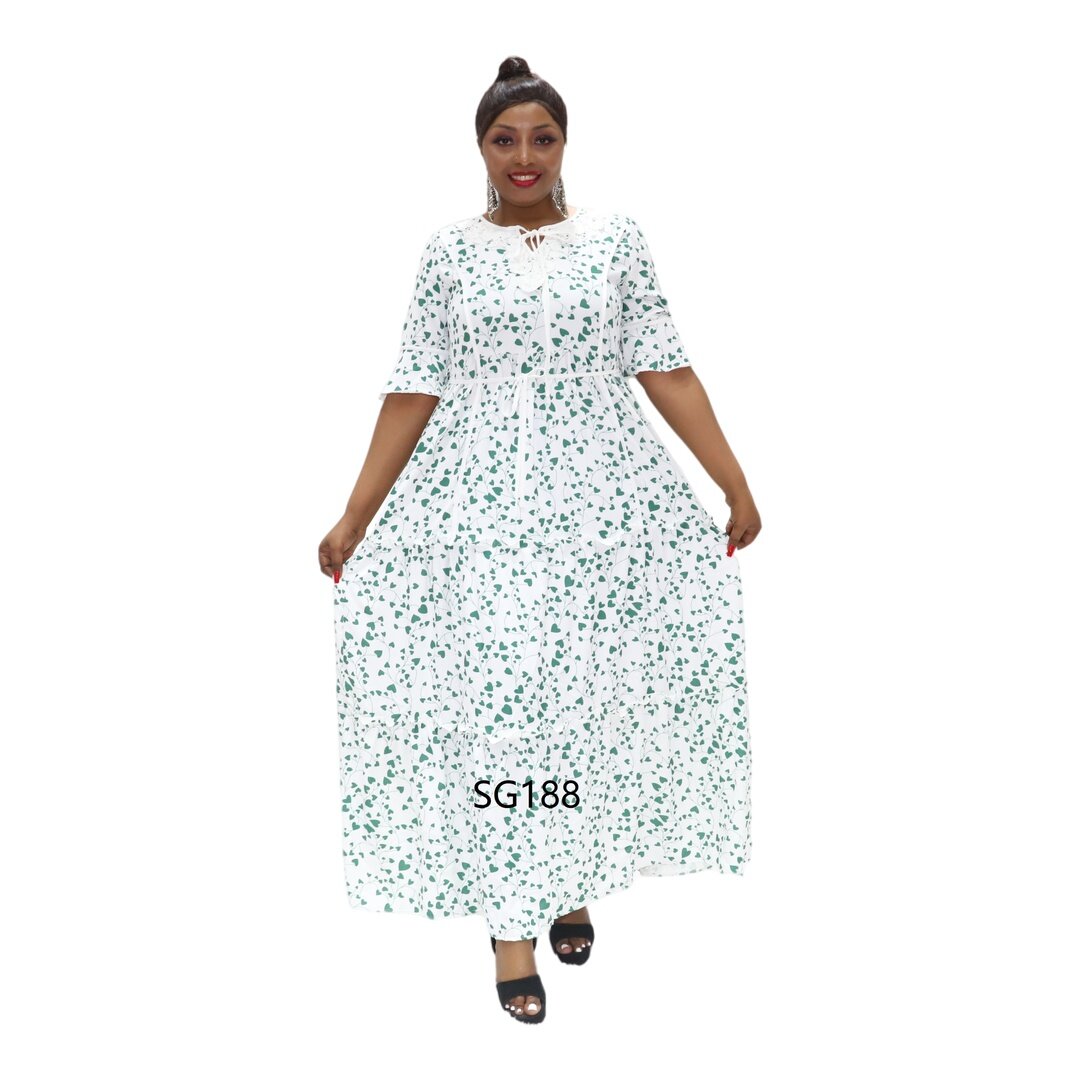

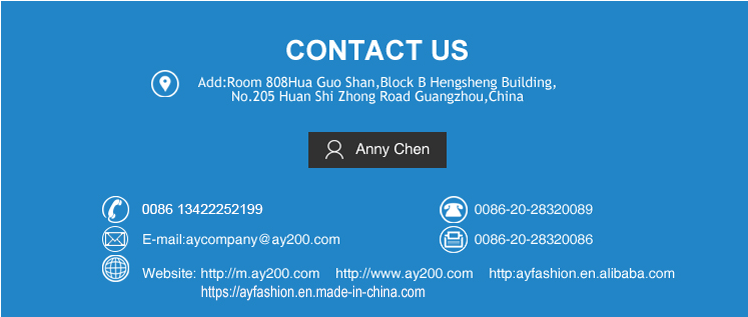
About this Item
Excellent Quality: This african clothing for women are used african fabric, Rayon, which is comfortable to wear. The fabric feels smooth.
Advaced Embroidery Craft:The african party dress used advanced computer embroider line,Advanced Embroidery Craft,Excellent workmanship.
Style:African Tribal Ethnic Clothing / Africa Retro Fashion Style,this ethiopian dress novelty in style, which made the classic african dress gorgeous and unique. Wearing them Make You More Beautiful, Fashion, Charming And Vibrant.
Product Description
Rayon is a man-made fabric. Rayon is a kind of silk man-made fiber, which is composed of cellulose, and cellulose is an organic compound that constitutes the main component of plants. It is precisely because it is a cellulose fiber that many properties are the same as those of other fibers, such as cotton and flax. This fiber is tooth shaped.
Product Advantages
Viscose rayon is a medium and heavy fiber with moderate to good strength and wear resistance, which has hydrophilic property (moisture regain is 11%). It can be dry cleaned or washed with water under good care. It will not generate static electricity or pilling, and the price is not expensive.
For more information about KT215-506FY Africa cotton dress, please kindly contact us at any time, we are glad to answer for you. If you want to find a partner, hope that we will be your best choice.
FAQ
Q: Are you factory?
A: Yes, dear. We have more than 200 workers, we could produce more than 10000 pcs dresses everyday.
Q: How do I know that if your product suitable for my market?
A: Our products are exported to many countries, such as Togo, Nigeria, Cote d'voire, Tanzania, Cameroon, Congo, Kenya, Ghana and etc, has become one of the largest Africa Dress Manufacturers in China.
Q: What is your MOQ?
A: Normally, our MOQ is 300 pcs per design/style, but depend on the materials and designs. Please contact us for more details.
Q: How about the leading time?
A: Generally, the leading time is about 30 to 50 days. But please confirm the exact delivery time with us as different products and different quantity will have different leading time.
Q: Could I have a catalogue?
A: Yes, dear. We provide 50 pcs sample for customers to choose everyday. Please contact us, we will send it to you.
About this Item
Round-neck, 3/4 sleeves with elasticated hems, fabric sash tie at waist, and maxi skirt with the bottom tier.
This dress is lined in 100% Polyester, has pockets, and a center back, invisible zipper closure.
Fabrication: Printed Polyester Twill.
Recommended Care: TURN INSIDE OUT MACHINE WASH COLD WITH SIMILAR COLORS DO NOT BLEACH RESHAPE, LAY FLAT TO DRY WARM IRON AS NEEDED ON REVERSE OF GARMENT MAY BE DRY CLEANED.
Characteristics of polyester
High strength, good elasticity, heat resistance, heat insulation, abrasion resistance, and corrosion resistance are relatively good, but dyeing and hygroscopicity are relatively poor, but the color fastness is good, not easy to fade. Because there is no specific dyeing group on the polyester molecular chain, and the polarity is small, it is difficult to dye, the dyeability is poor, and the dye molecules are not easy to enter the fiber; it is sultry to wear, and it is easy to carry static electricity and stain dust, which affects Aesthetics and comfort. However, it is very easy to dry after washing, the wet strength hardly decreases, and it does not deform. It has a good wash and wears performance.
There are many types of polyester fiber fabrics. In addition to weaving pure polyester fabrics, many products are blended or interwoven with various textile fibers, which make up for the shortcomings of pure polyester fabrics and exert better wearing performance. Polyester fabrics are developing towards the naturalization of synthetic fibers such as wool-like, silk-like, linen-like, and deerskin-like fibers.
The advantages of polyester fabrics
- Polyester is a high-strength fiber. The strength of the short fiber is between 2.6 and 5.7cN/dtex, and the strength of the high-strength fiber is between 5.6 and 8.0cN/dtex. How high is the strength? Simply put, it will be about 20 times higher than viscose.
- Super elasticity is another advantage of polyester fabrics. The elasticity is comparable to wool. After folding or rubbing polyester, it can be quickly restored, and no wrinkles will be left. Very few fabrics have such high elasticity.
- The heat resistance of polyester is the best among chemical fiber fabrics, and it also has good plasticity. It is suitable for the production of pleated skirts, and the pleats can be well maintained without excessive ironing.
- The light resistance is not bad, and the light resistance exceeds that of natural fibers. The high light resistance allows polyester fabrics to be exposed to sunlight.
- The chemical properties are stable, and it is not easy to be corroded by acid or alkali. If the clothes are dirty, they can be washed with bleach, and the polyester fabric is not easy to mildew even in a humid environment.

